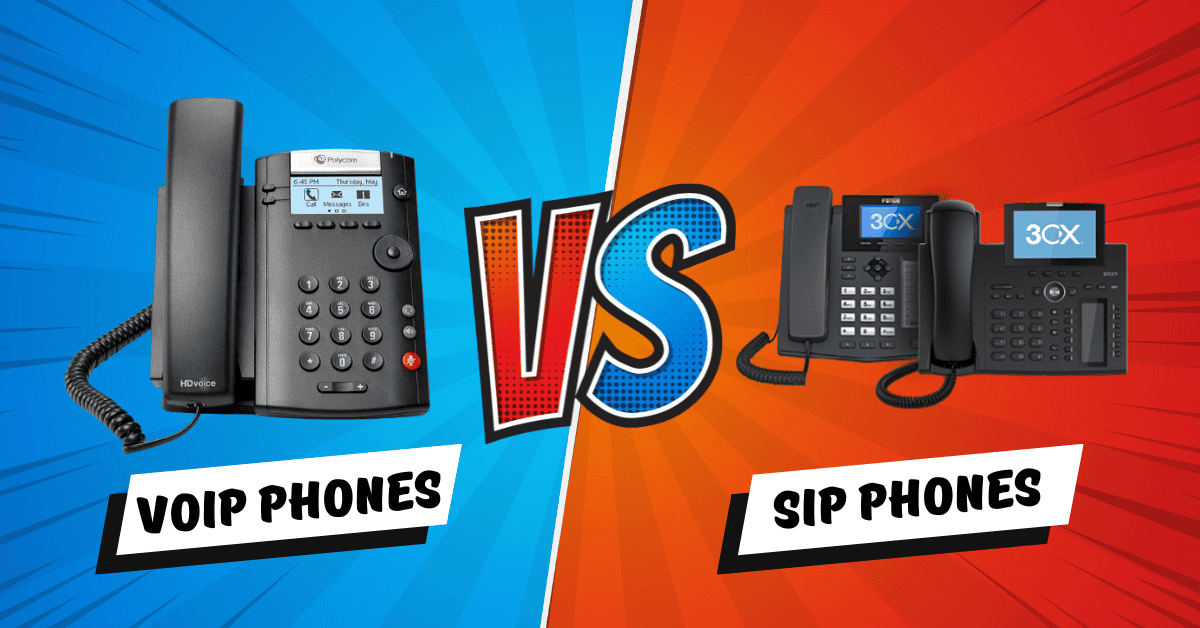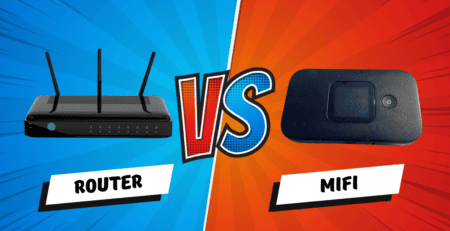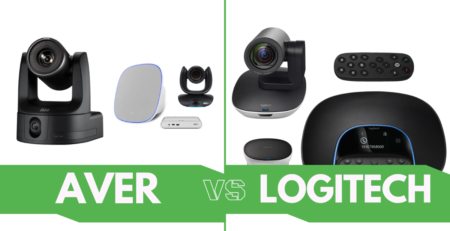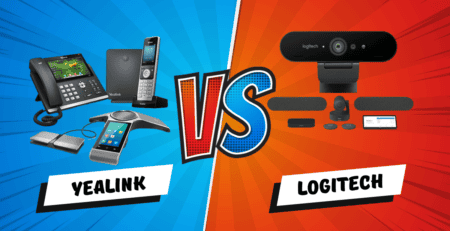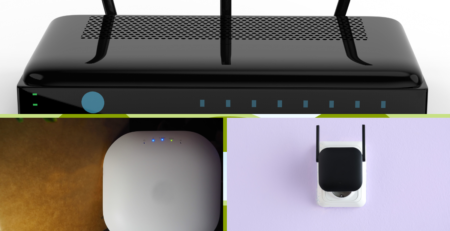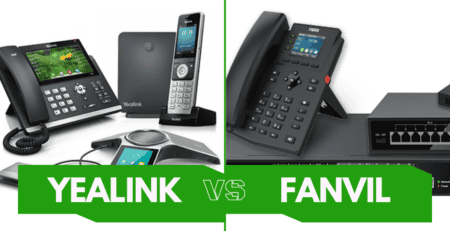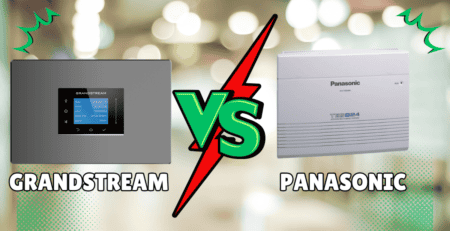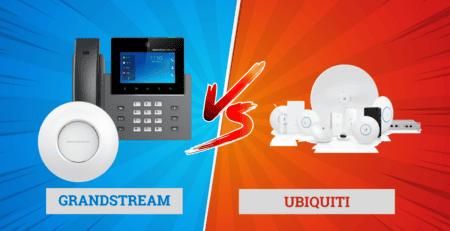IP Phones vs SIP Phones: Which is Better?
In today’s fast-paced business environment, effective communication is paramount for success. With the advent of technology, businesses have been introduced to a wide range of communication systems, including IP phones and SIP phones. However, the question remains: which one is better for business communication?
Choosing between IP phones and SIP phones depends on various factors such as the scale of the business, budget, and specific requirements. While both offer advanced features and flexibility, IP phones are often preferred for larger organizations with high call volumes. SIP phones, on the other hand, are more popular for smaller businesses due to their cost-effectiveness and scalability.
In this article, we will delve deeper into the features, benefits, and drawbacks of both IP and SIP phones, helping you decide which option is the best fit for your business communication needs.
Differences between IP phones and SIP phones
IP phones, also known as internet protocol phones, are communication devices that utilize the internet protocol to make and receive calls. They operate by converting analog voice signals into digital data packets, which are then transmitted over an IP network. This allows users to make and receive calls using their internet connection instead of traditional telephone lines.
On the other hand, SIP phones, which stand for session initiation protocol phones, are a type of VoIP (Voice over Internet Protocol) phone that uses the SIP protocol to establish and manage communications over IP networks. SIP phones rely on the SIP protocol to initiate, maintain, and terminate communication sessions, such as voice calls, video conferences, and instant messaging.
The primary difference between IP phones and SIP phones lies in the underlying technology they use. IP phones are designed to work with any IP network, while SIP phones are specifically designed to work with SIP-based VoIP systems. This means that SIP phones are more tightly integrated with VoIP infrastructure, offering more advanced features and functionality compared to traditional IP phones.
Benefits of using IP phones for business communication
One of the main benefits of using IP phones for business communication is the cost-effectiveness. IP phones leverage the existing internet infrastructure. This can result in significant savings, especially for businesses with high call volumes or multiple locations.
Another advantage of IP phones is their flexibility and scalability. Since they operate over the internet, IP phones can be easily integrated with other business applications and software, such as customer relationship management (CRM) systems, productivity tools, and collaboration platforms.
IP phones also offer advanced features that can enhance business communication. These features may include call forwarding, voicemail, conferencing, and integration with mobile devices. Additionally, IP phones often come with built-in support for features like call recording.
Advantages of using SIP phones in business communication
One of the primary advantages of using SIP phones for business communication is the cost-savings. SIP phones leverage the existing IP network infrastructure. This can result in significant cost savings, particularly for businesses with multiple locations or high call volumes.
SIP phones also offer increased flexibility and scalability compared to traditional phone systems. With SIP-based communication, businesses can easily add or remove users, change call routing, and implement advanced features like call forwarding, voicemail, and conferencing without the need for complex and costly infrastructure changes.
Another advantage of SIP phones is their integration capabilities. SIP-based communication systems can be seamlessly integrated with various business applications, such as customer relationship management (CRM) software, productivity tools, and collaboration platforms.
Considerations when choosing between IP phones and SIP phones
When choosing between IP phones and SIP phones for business communication, there are several factors to consider. One of the primary considerations is the size and complexity of the business. Larger organizations with high call volumes and multiple locations may find IP phones more suitable, as they offer greater scalability and advanced features to handle the increased communication needs.
Another important factor is the existing IT infrastructure and the level of technical expertise within the organization. SIP phones may require more specialized knowledge and configuration, as they are tightly integrated with the VoIP system. Businesses with a dedicated IT team or access to managed IT services may be better equipped to handle the setup and maintenance of SIP phones.
The budget and cost considerations are also crucial when deciding between IP phones and SIP phones. While both options can offer cost savings compared to traditional phone systems, the specific implementation and ongoing maintenance costs can vary.
Common Features
Both IP phones and SIP phones offer a range of features that can enhance business communication.
IP phones often come with additional features, such as integration with productivity tools, CRM systems, and collaboration platforms. This allows for seamless data sharing and improved workflow efficiency. Many IP phones also offer advanced features like video conferencing, screen sharing, and virtual receptionist capabilities.
SIP phones, on the other hand, may have more specialized features tailored for VoIP communication. These features may include advanced call routing, call queuing, and call analytics. SIP phones may also offer better integration with unified communications (UC) platforms.
Which is better for business communication?
Determining whether IP phones or SIP phones are better for business communication ultimately depends on the specific needs and requirements of the organization. Both options offer their own set of advantages and disadvantages, and the choice will depend on factors such as the size of the business, the existing IT infrastructure, the budget, and the desired level of features and functionality.
For larger businesses with high call volumes and complex communication needs, IP phones may be the better choice. They offer greater scalability, advanced features, and the ability to integrate with a wide range of business applications. IP phones can also be more cost-effective in the long run, as they leverage the existing internet infrastructure and eliminate the need for traditional telephone lines.
On the other hand, SIP phones may be more suitable for smaller businesses or organizations with limited IT resources. SIP phones are often more cost-effective, especially in terms of ongoing maintenance and service fees. They also offer specialized features such as advanced call routing and call analytics. SIP phones can be a more streamlined and integrated communication solution for businesses that are primarily focused on voice communication.
Ultimately, the decision between IP phones and SIP phones should be based on a thorough analysis of the business’s communication requirements, budget, and technical capabilities.

